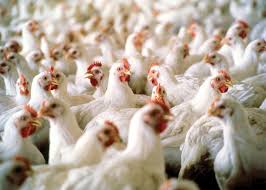by Alexandra
These workers are subjected to environmental and occupational hazards on a daily basis. Injuries, zoonotic infections, and airborne exposures are amongst the main culprits of health and safety risks. Farmworkers, especially the new and untrained ones, are more susceptible to health hazards. Below is a compilation of seven health and safety tips you should know for trading poultry.

As an employer, you should ensure that your poultry workers are properly trained to operate farm equipment and recognize signs of respiratory diseases in poultry. This is critically important since many viral respiratory infections can be transmitted from the birds to humans. With well-trained workers, dead or ailing birds should be quickly identified and reported so that urgent measures can be taken to ensure the safety of the staff in the event an infection is detected.
All workers in the poultry farms should get adequate training on identifying clinical signs of AI virus infections in humans so that they rush for immediate medical treatment. Proper training on cleaning, inspection, and storage of farm equipment can go a long way in enhancing safety.
When handling the birds, workers should always wear personal protective clothing. The protective clothing includes aprons, gloves, coveralls or outer garments, disposable head or hair covers and boots. Protective clothing can help prevent skin contact with agrochemicals on the farms or birds with the infection, materials, or environments.
When selecting the appropriate protective clothing, consider the worker's role in the premises. Lightweight and impermeable but breathable clothing should be used to protect workers from infections, injuries, and heat stress.
Disease prevention and control centers recommend that workers who work in direct contact with poultry are administered with a prophylactic antiviral drug immediately after getting exposed to infected birds. If they remain in contact with poultry that has been confirmed to be sick, they should receive daily medication for the entire time. It is also recommended that all persons working in straight contact with live poultry get an annual influenza vaccine.
AI viruses and other infections are transmitted by inhaling infected droplets, dust, or aerosols. Therefore, poultry workers should wear respirators to protect themselves against such infections. The CDC recommends that poultry workers should wear air-purifying respirators with a particulate filter that is certified by the NIOSH. These respirators should always be worn whenever they work in the poultry barns or contact with infected birds or materials. With high-level protection face masks such as the N-95, reliability may be warranted.
Proper decontamination and hygiene processes ought to be followed to prevent infection. Machinery and equipment should be operated as per the manuals to ensure that no accidents occur during operations. Hand washing is especially important for workers after handling poultry to avoid take-home contaminations.
Even after the removal of the personal protective equipment like gloves, poultry staff should make sure they wash their hands with water, alcohol based-sanitizers, or waterless soaps. All contaminated clothing, PPE's and equipment should be properly stored and left at work.
Proper signage is important to minimize or eradicate accidents. Signage can be used to highlight what the workers should be doing and where they are allowed to access or operate. This can help in preventing untrained or unknowledgeable personnel from operating farm equipment that they know little about. Signage is also effective in reminding workers to follow the set safety guidelines and work practices that enhance their safety.
Most accidents in poultry farms and processing plants are a result of bodily injury from moveable parts of machinery. To prevent this, you should ensure that all moveable parts are protected with mesh guards to prevent any accidents. All gas and oil tanks within the working areas should be shielded with barriers.
This is effective to ensure the workers are protected in the event of an explosion or other adversities. The mesh guards and barriers are effective in preventing access to the moveable parts, which minimizes the chances of a nasty accident.
We hope these health and safety tips for trading poultry will help you take care of your poultry farms in a professional way.
Eric Reyes is a passionate thought leader having been featured in 50 distinguished online and offline platforms. His passion and knowledge in Finance and Business made him a sought after contributor providing valuable insights to his readers. You can find him reading a book and discussing current events in his spare time.

About Alexandra
Content creation is my passion and profession. I am an avid reader which basically inspired me to get into writing. I love to read and know about almost everything under the Sun. Apart from spending time writing and reading, I love exploring new places and getting to know different cultures.
 |
 |
 |
 |
 |
 |
 |